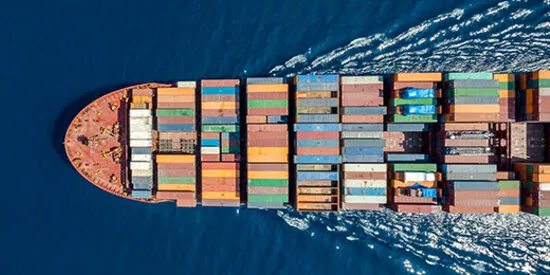
MLETR: a digital big bang and a foundation to build the digitalisation of international trade
In 2014, the time between harvesting a rose in Kenya and selling it to European florists was 34 days. Out of these 34 days, 10 were required for handling all the various documents, with the process involving no fewer than 30 people or organisations and 200 interactions.
These figures illustrate the complexity and inefficiencies of international trade that is still too reliant on paper-based procedures. Fortunately, the MLETR, adopted in 2017, is the promise of a “digital big bang” for the entire industry. However, while Covid has helped to multiply initiatives, its roll-out takes time, as each country needs to update its body of law. Now, it is up to all industry stakeholders to work together to facilitate and accelerate its adoption.
Since 2014 and the joint study by Maersk and IBM on Kenyan roses, things have ultimately changed little. In its recent white paper “Défis et opportunités de la digitalisation du commerce international” (Challenges and Opportunities of the Digitalisation of International Trade), the French International Chamber of Commerce (ICC) estimated, for example, that less than 1.5% of the 4 billion documents created each year in international trade are digitised! Each cross-border transaction still requires 36 documents and 240 copies on average.
Towards end-to-end digitisation
The MLETR1, adopted in 2017 by the United Nations Commission on International Trade Law (UNCITRAL), standing for “Model Law on Electronic Transferable Records”, has nevertheless marked a major step forward for international trade. By enabling the legal use of electronic transferable records (bills of lading, bills of exchange, promissory notes, warehouse receipts, international guarantees, standby letters of credit, etc.) both domestically and across borders, it has definitely opened the door to a genuine end-to-end digitisation of transactions.
This text is more than a "big bang" that would change everything overnight. It is above all a foundation on which to build the digitalisation of the entire sector. It is a “enabler” of transformation which, thanks to the definition of common standards, will enable all stakeholders in the physical, financial and documentary value chain of international trade to transform their operating methods and thus increase operational efficiency.
At present, most stages of international trade still rely on paper-based documents, often for legal reasons, because, barring rare exceptions2, only physical documents are legally binding. The gradual adoption of the MLETR will change this.
Everywhere, things are progressing, and are even accelerating due to Covid
Now, five years after its publication, the MLETR has been adopted in six States only (including Singapore) and seven jurisdictions3. It has at last become a priority in major countries of international trade, such as Great Britain, Germany and, more recently, France which, driven in particular by the French ICC and Paris Europlace, aims to adopt the MLETR as soon as possible.
Nevertheless, despite this progress, the MLETR is still facing many obstacles, including the need to obtain the support of all stakeholders in the value chain: importers and exporters, banks, insurers, transporters and States (including customs, governments and the legal system).
To facilitate and accelerate its adoption, all industry stakeholders must better work together. It now seems clear that the challenge is not of a technical nature: it is above all cultural and human, with obstacles, particularly legal ones, still to overcome.
New forms of cooperation to be thought out
Accelerating the MLETR’s deployment on a global scale will require a change in mindsets. All Trade Finance players will have to work differently, in a coordinated and concerted manner, notably through common standards, solutions and technologies.
Fintech start-ups, particularly, will have a bigger role to play in connecting the worlds of logistic, transport, trade and finance. This will be a key role, especially during the transition phase between countries having adopted the MLETR and others.
One of the keys to boost MLETR adoption will therefore be in the ability of the various stakeholders to cooperate in a new way, including at the institutional level - ICC, WTO, WCO, States - in order to change the laws and practices belonging to the trade ecosystem so as to agree on common standards. These common standards will greatly accelerate the entire sector’s digitalisation.
Cooperation, although difficult to set up, is essential if we are to make international trade more accessible, more efficient, less costly, and thus attract new players - and talents - through a resolutely modern, digital and profitable ecosystem that finally matches the stakes of the sector.
By Marie-Laure Gastellu and Christian Cazenove
1- MLETR consists of 19 articles followed by an explanatory note ‘’which provides background information to assist States in enacting its provisions and to offer guidance to other users of the text’’.
Cf. https://uncitral.un.org/sites/uncitral.un.org/files/media-documents/uncitral/en/mletr_ebook_e.pdf
2- Club deals governed by rule books
3- https://uncitral.un.org/en/texts/ecommerce/modellaw/electronic_transferable_records/status




